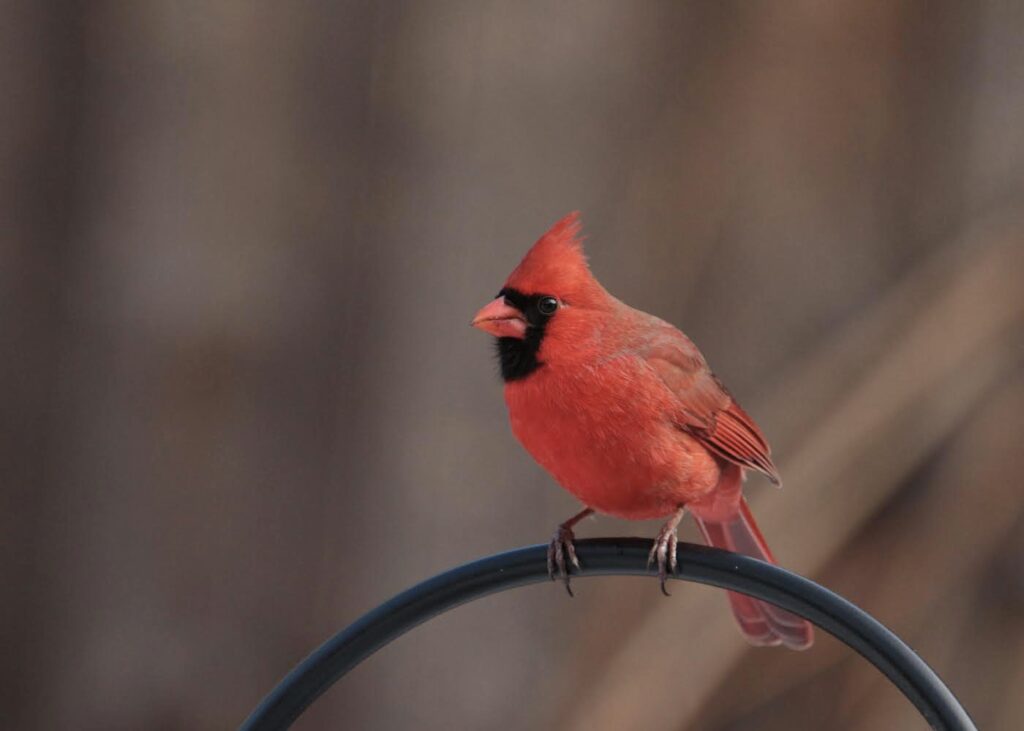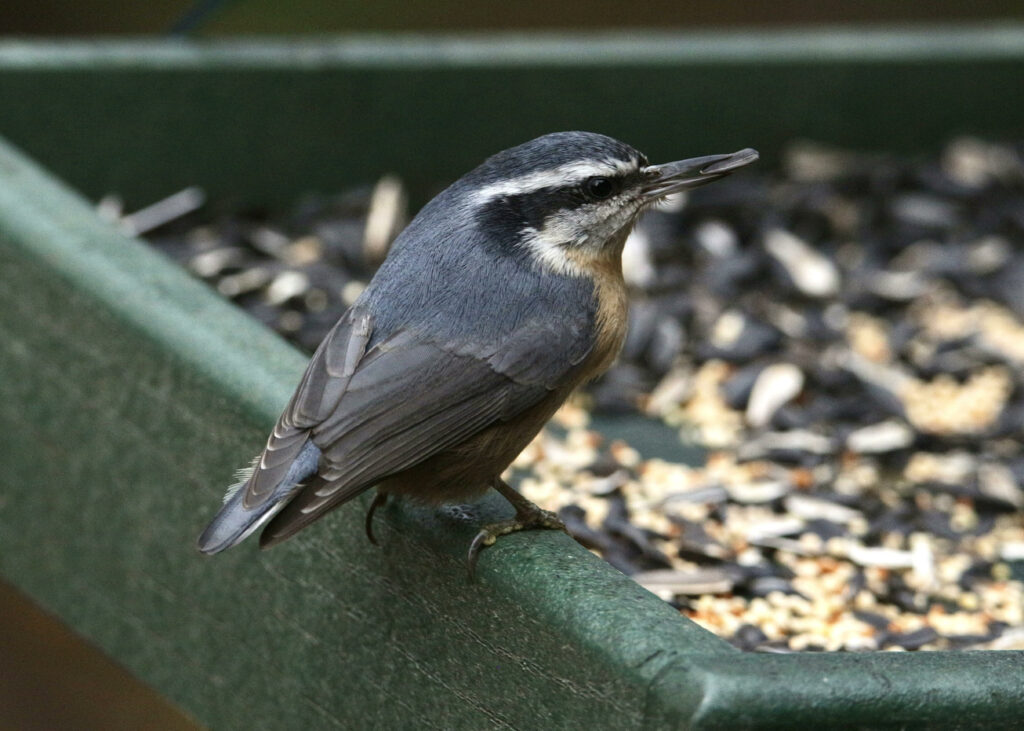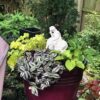The wind is howling one day, it’s raining the next. Yes, it’s winter in Pittsburgh, and there are limited things to do outdoors. Feeding birds is one of them.
Birdwatching has become a multimillion-dollar industry and is the most popular pastime in America, says Brian Schema, operations director for the Audubon Society of Western Pennsylvania at Beechwood Farms in Fox Chapel. It’s also a good stress reliever, once you figure out where to start.
There are all types of feeders, and many are specific to the birds you wish to attract, Schema said. Barrel feeders, tube feeders and tray feeders are some of the choices available. He recommends starting simple with a tube feeder that has a small tray base.
Tube feeders allow you to see the birds better when they come into the feeding station, which is, after all, the point. Price ranges vary, from very cheap to upward of $100. Schema recommends Droll Yankee and Brome feeders; both will last a long time, and Droll Yankee has a lifetime warranty. Beechwood Farms actually repairs them. But it’s OK to buy a less expensive version to get started.
Laura Hansen, co-owner with Knox Brown of the three local Wild Birds Unlimited stores here, said it can be even simpler than buying a feeder.
“I personally think you can start by putting out a pie plate with a little bit of bird seed. You don’t have to start with anything official,” she said. “Something just to get bird seed out and see what birds are coming in. Sometimes you don’t know what birds will be coming.”
Her stores carry Brome feeders as well as a high-quality line called Aspect that is comparable to Droll Yankee. They can also order Droll Yankee.

If you think squirrels will be an irritant instead of comic relief at your bird station, there are feeders that are “squirrel proof.” The Brome Squirrel Buster comes in a variety of sizes and is effective at keeping these little acrobats at bay, Schema said. Prices start at $50. Wild Birds Unlimited sells an Aspect feeder called the Eliminator.
“It closes when a squirrel gets to it,” Hansen said. “It is the best and similar to Brome.”
Both agreed that once you get serious, it pays to invest in a high-quality feeder keyed to the types of birds you are interested in attracting. Besides lasting longer, some of them have been treated with antimicrobials that cut down on disease transfer, helping keep the bird population healthy. As in most things, Schema said, a good feeder will eventually pay for itself and last long after the cheap plastic ones crack and fall apart. Hansen concurred.
Hang the feeder somewhere that can be easily viewed from the house.

Buying seed can be every bit as confusing as choosing a feeder. Seed choice is important, because it will drive what species come into the feeder.
Schema often crafts his seed selection to attract the birds he wants to see, such as evening grosbeaks, Eastern bluebirds and finches, but there are many prepackaged mixes that do the work for you and will attract a variety of avian visitors. Audubon sells a mix put together to lure birds specifically in this region. It is called Beechwood mix and is available at Beechwood Farms and some Giant Eagle supermarkets.
Hansen’s stores also sell multiple varieties of seeds, and they, too, offer a proprietary mix with low waste keyed to attracting the local bird population.
“We are having great luck with a hot pepper seed product called Fiery Feast. It’s a mixture of hot pepper, sunflower seeds and nuts,” she said. “It’s been found that raccoons don’t like it. Deer don’t like it. Bears don’t like it.”

Black oil sunflower seed will attract many birds. Readily available and fairly reasonable in price, it can be a good starter seed. The only drawback with sunflower seeds (striped sunflower seeds are larger in size) is the shell waste that accumulates under the feeder. Which brings us to an important part of feeding birds: sanitation.
In 2021 birds were being found dead around feeders. As a preventative measure, people were asked to take down their feeders. No direct cause of the illness was ever found, as the bird flu was a contagion that only affected domestic flocks. Going forward the Audubon Society of Western Pennsylvania has been emphasizing the need to keep feeders clean and sanitized.
Feeders need regular maintenance, Schema said, and that includes “the responsibility to keep the feeder and feeder area clean.” Once every two weeks, the feeder should be washed out thoroughly with a 10-to-1 mixture of water and bleach. In the summer, do it more often. Molds and fungus in feeders can make the birds sick, causing the feeding station to become a vector for disease.
Don’t forget the area underneath the feeder — clean that up, too. If this seems like a lot of work, there are seed mixtures that are “no waste,” meaning no seed hulls will drop. These mixes tend to be the most expensive, but it might be more cost effective to spend a little more for seed. Hansen’s supplier did a study and found it takes about 1¾ to two (20-pound) bags of regular seed to equal one 20-pound bag of premium mix.
“If you get junk seed, that’s what you get, and it all ends up on the ground,” she said, “It’s so much more fun to get quality seed, and lots of places have it.”
Another way to keep maintenance under the feeder to a minimum is by moving the feeder around the yard, Schema said. Don’t worry — you won’t confuse the birds.

Which brings us to the last, and probably most important, point. If you are feeding birds and you stop, nobody dies. To believe otherwise is a myth, says Schema. Birds are opportunistic, and if they find a good food source they will utilize it. Feeders are not, however, their sole source of nutrition. Hansen said she often only fills her feeders every several days in order to conserve seed and keep spending in check.
No matter how often you decide to feed, there are times when feeding stations are beneficial to the bird population. Schema said feeding during times of stress, such as breeding season or in wicked winter weather, can be helpful to the bird population, but they don’t rely on us. Humans feed birds for their own enjoyment.
“I just know that any time I’m beside myself and stressed, to just sit down and watch the birds and their activity, it makes me happy,” Hansens said.
Where to get supplies and advice:
- Beechwood Farms Nature Reserve, 614 Dorseyville Road, Fox Chapel. Home to the Audubon Society of Western Pennsylvania. http://www.aswp.org/pages/beechwood.
- Wild Birds Unlimited has locations in Pine, Bethel Park and Monroeville. https://pittsburgh.wbu.com/.
- Best Feeds, 2105 Babcock Blvd., Ross. Bulk seed is available, as well as prepackaged mixes. It also stocks a selection of feeders. https://www.bestfeedsgardencenter.com/.
Susan Banks was a copy editor at the Pittsburgh Post-Gazette who was on strike from October 2022 until she retired at the end of 2023. Email her at klebergardens@gmail.com.



